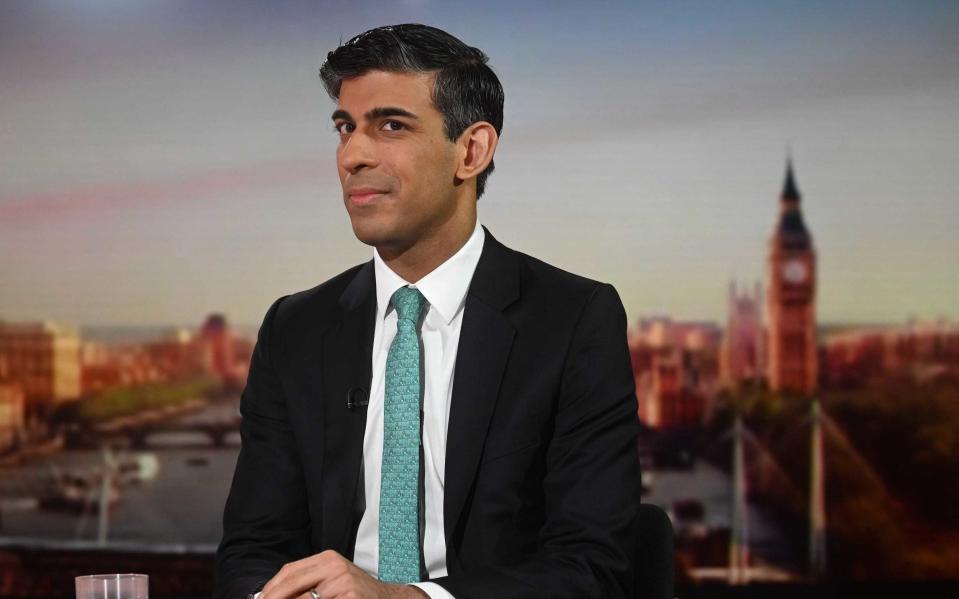Rishi Sunak's four National Insurance options

Rishi Sunak has boxed himself into a corner with next month’s national insurance (NI) raid. The Chancellor faces pressure to rethink plans pledged last September of a 1.25 percentage point rise in tax on workers and their employers.
At the time, Sunak said it would raise £12bn per year, but the Office for Budget Responsibility thinks the rising tax will bring in more like £17bn.
It was proposed when Britain’s economic recovery seemed to be on track in its post-Covid recovery: the biggest problem was finding a permanent flow of extra cash for an NHS which, already battered by the pandemic, is in need of long-term resources to cope with the ageing population.
But that seemingly easy way to bag more cash came before households were hit with a cost-of-living crisis. A surge in energy costs has been made worse by Russia’s invasion of Ukraine, sending already high bills spiking further and threatening Britain with its biggest wave of inflation for 40 years.
How can Sunak get out of the disastrous tax pledge, or at least soften its hard edges?
Scrap the hike
“I firmly believe in lower taxes,” the Chancellor said last month. Given this stance, cancelling his own tax rise might not seem too much of a stretch.
But Sunak has insisted taxes are rising: he does not want to forego that vital cash despite the hit to taxpayers. It is needed to avoid the “unpalatable, unacceptable situation” of NHS waiting lists going up, he told the BBC’s Sophie Raworth over the weekend.
Loss of revenues: £17bn
Likelihood: 1/10
Raise the threshold
Just like income tax, NI is only paid on eligible income. The threshold is currently just below £9,600 per year and is set to rise to £9,880.
Increasing that to £11,284 would effectively stop the increase in the rate from hitting those earning below the average income of £27,500, according to proposals from the Centre for Policy Studies.
This has the added benefit of tying in with the Conservative manifesto pledge to raise thresholds more quickly to help lower earners - though the party also promised not to raise NI at all.
Loss of revenues: £4.7bn
Likelihood: 5/10
Only charge employers
Sunak split the tax raid across employers and employees to show that businesses are bearing some of the pain. Economists suspect this is nonsense as the higher cost of employing workers ultimately feeds through to wages, but it will at least limit the hit to pay packets next month.
Given the cost-of-living squeeze, the Chancellor could cancel workers’ rising NI contributions, including the self-employed. Though applying the burden only on companies is often called a “tax on jobs”, there are currently a record number of vacancies available so it would be unlikely to hit workers' job prospects.
Loss of revenues: £9bn
Likelihood: 3/10
Raise the employment allowance
Small businesses can reduce their NI payments by up to £4,000 per year via the employment allowance. The Federation of Small Businesses has called on Sunak to increase this to £5,000 to free up cash.
Loss of revenues: £450m
Likelihood: 4/10

 Yahoo Finance
Yahoo Finance 